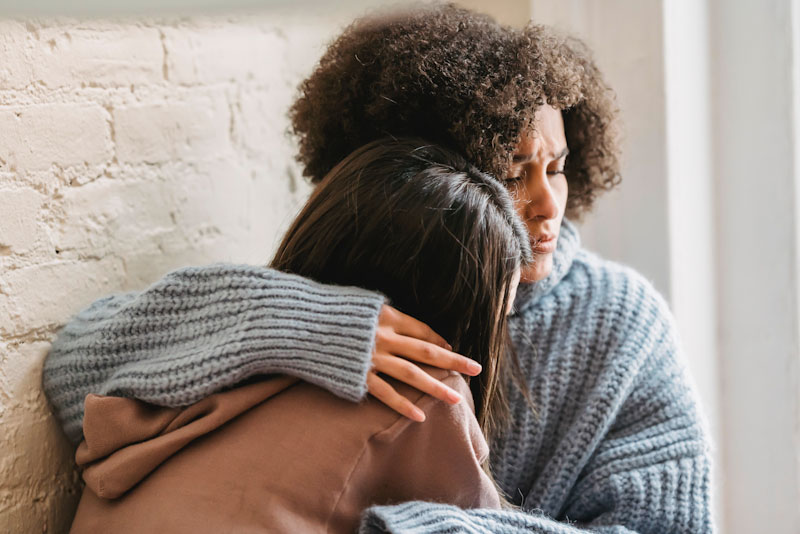How Can We Deal With Overdoses?
Preparedness, education and compassion: One addiction expert shares her insights into saving lives and grappling with trauma, on International Overdose Awareness Day

Drug overdoses are a major international health crisis: 2022 was the second year in a row that overdose deaths surpassed 100,000 in the United States. But overdoses are also thousands of individual tragedies, involving thousands of lives cut short and thousands of grieving families. On International Overdose Awareness Day, we remember our family members and friends we lost to the drug epidemic. But we also want to highlight the help that’s out there for those who struggle with drug use.
Overdoses, which are now driven by fentanyl and other opioids, are difficult to talk about; the international scope of addiction to these extremely potent drugs is new, and most people aren’t familiar with the tools that are becoming available to fight overdoses and treat opioid addictions.
“We have to continue to educate, and we have to do it with compassion,” said Kim Hofmann, chief nursing officer at Malvern Treatment Centers in Pennsylvania. Hofmann, a 40-year veteran of nursing, is in addiction recovery herself, as are her husband and two sons. She lost a daughter to a fentanyl overdose in 2017.
In her career, Hofmann has administered overdose prevention treatment many times, saving more than a few lives. “I look at life from the eyes of a mother and a nurse and a nurse leader,” she said. “It’s bittersweet for me, overdose awareness. I fell in love with this type of work just because I get to see and experience people getting better — the hope that comes in their eyes when they start to feel somewhat comfortable in a sober body.”
Hofmann shared some important considerations, both practical and emotional, for people who are struggling with drug use, their families and others affected by addiction and overdose.
Know the Drugs, Know the Harm Reduction Tools
“These young people today, they don’t get a second chance,” said Hofmann. “They go out and they pick up what they believe is heroin, and it’s straight fentanyl,” which is 50 to 100 times stronger than other opioids like heroin and oxycodone. “They don’t get a chance, because most people don’t get sober the first time they try to get sober. I’m all for Vivitrol and Suboxone, in order to keep the individual alive so they can decide which route they want to take. It’s so important.”
If you’re someone who uses drugs, you should be aware that fentanyl is frequently disguised as oxycodone and other pills sold on the street. Today, it’s also mixed into cocaine and many other drugs, a relatively new development. Harm reduction tools like fentanyl test strips and kits can sometimes help people determine if their drugs are tainted with the synthetic opioid.
Vivitrol (also called naltrexone) and Suboxone are other harm reduction tools — medications that reduce opioid cravings.
There’s also naloxone, better known by the brand name Narcan, which can halt the effects of an opioid overdose. It will soon be available for purchase over the counter in American pharmacies and other stores. However, naloxone is not always as long-acting as fentanyl, so after you administer it, you need to call emergency responders. There’s room to err on the safe side in giving the medication: Naloxone won’t hurt someone who isn’t experiencing an overdose.
Signs of an opioid overdose include shallow breathing, blue lips, choking and snoring. If someone may be overdosing, give them Narcan, put them on their back, give them air, turn them on their side and keep monitoring them until professional medical help arrives. The person may wake up agitated, but “you have to still continue to show love and compassion,” said Hofmann. “And reassure them, ‘You’re OK.'”
It’s important for people who use opioids and their loved ones to understand all of this, but it can be learned, and it can make all the difference in an emergency.
‘I’m So Glad You Made It Back’: Answering Addiction With Compassion
“What we have to do is always show kindness and love,” is what Hofmann tells both her staff and family members of people with substance use issues. “Because you may be the last voice before that person walks out the door. We can be firm, but at the end of the day, it’s basically meeting the individual where they’re at, making sure that they feel comfortable that they can honestly share” what they’re going through.
Hofmann also shared some insights on dealing with the emotional aftermath of the overdose death of a family member: Look for trauma support groups, read books about grief, join a spiritual program, take care of your own basic needs. When she lost her daughter and wrestled with returning to work in an addiction treatment setting, Hofmann turned to a grief counselor. “I didn’t know how I was going to react to another overdose of a patient. Would I be able to keep myself together during those times?”
Overdose is also a traumatic experience for those who survive it, and therapy helps Hofmann’s patients. Often, it’s the sort of event that requires working through with a counselor one on one.
Addiction is a swirl of pain and frustration for both the person in the midst of it and their loved ones. But no matter how dire the situation, people do recover. “It doesn’t matter how many times” you or a family member struggle with the disease and need addiction treatment, said Hofmann. “This one time might be the right time for you.”
More Help & Information
Does the 'Pink Cloud' of New Sobriety Help or Hurt? It's Complicated
The euphoria of early recovery may be fleeting, but long-lasting balance is the goal. Here's how to keep your head up through the process and handle reality with confidence.
Sobriety vs. Recovery: What's the Difference?
Are the concepts themselves up for debate? Do they require certain treatments, or abstinence from everything? It's complicated! And new ways of thinking are changing the conversation.
Now Elite NFL Players, They First Tackled Addiction | News Roundup
All Sober compiles the best of the latest headlines. Here's your addiction and recovery news for the week of Feb. 19, 2024!
Help Them Help You: Explaining Your Mental Health to Your Family
Your mental health can affect — and be affected by — your loved ones. Here's how to discuss it with them so everyone can heal.
Dry January (and Beyond): The Possibilities Are Endless
There's never been a better time to go sober. Whether you're trying it out this month or already living the life, join us for some tips, ideas, inspiration — and maybe even new friends.
Sober Holiday Tips: Meeting 'Share-a-Thons'
Need to get out of the house for a bit and see some friendly sober faces? Recovery support group meeting marathons run 24/7 from Christmas Eve through New Year's Day.
What Happens After an Intervention?
Your loved one agreed to get treatment for addiction during their intervention — or not. Here's what you need to know about what comes next.
We're in This Together: Building a Healthy Sober Support Network
You are the captain of your recovery, but you don't have to do it alone. A sober support network will lift you up in tough times and celebrate your triumphs.











